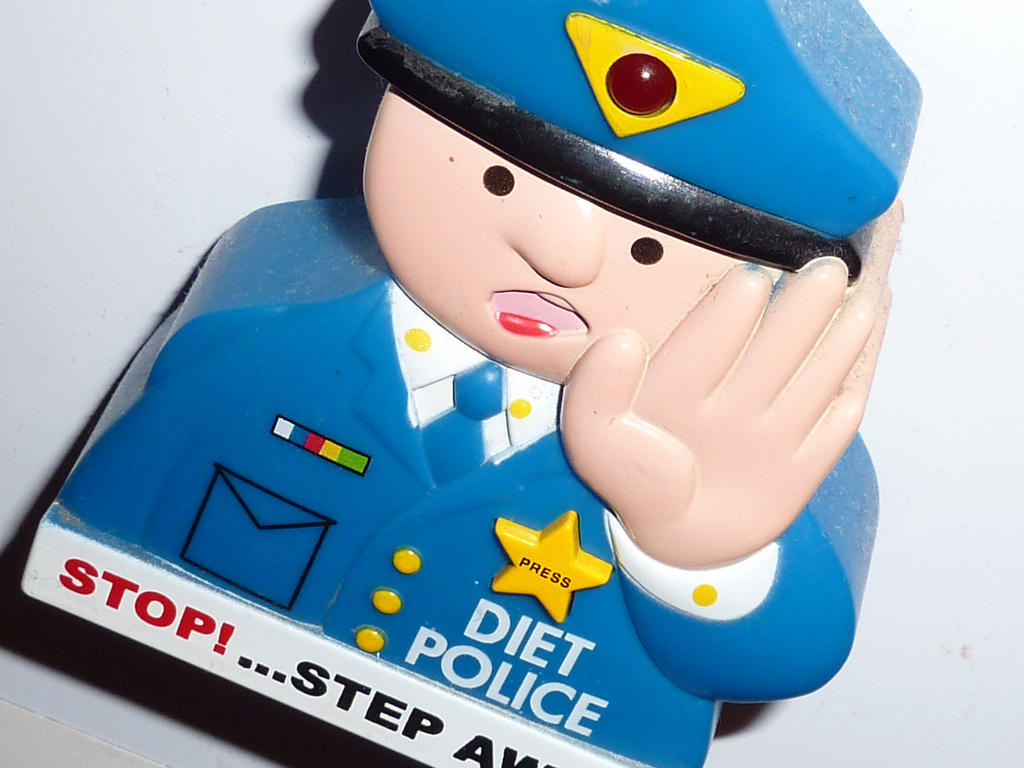The Truth About Dieting – 7 Things Psychotherapy Can Teach Us
If you haven’t either tried dieting, or at least considered it, you are an increasingly rare statistic.
With 45 million Americans dieting each year, and in the UK women having tried on average 61 diets by the time they reach 45? Diets are seen as a ‘normal’ thing to do.
But are they really normal and harmless? What is the truth about dieting?
7 IMPORTANT TRUTHS PSYCHOTHERAPY CAN TEACH YOU ABOUT DIETING
Let’s see what psychotherapy has to say about it.
1. The symptom is rarely the issue.
When it comes to the problems you have in your life, the symptom is rarely the real trouble. In the case of dieting, your excessive weight (or your belief you carry excessive weight, as often it’s perfectly healthy women trying dieting) is seen as the issue. But that is like someone who has anxiety attacks thinking that muscle tension is what they need to deal with. Even if they learn how to relax their muscles, until they recognise what causes their anxiety, it’s unlikely the attacks will just go away.
Excessive weight is often just a symptom of overeating and abusing food in a way that leads to your body being unhealthy. And dealing with a symptom means the issue is still there, producing more of the symptom – another round of weight gain. No wonder dieting causes such extreme frustration.
2. Surface issues often have bigger root issues behind them.
 The mind is like a very good computer that can manage a great deal before it finally shows distress. What this means is that by the time we perceive a ‘problem’, it’s often because a bigger issue is unsolved and fighting for attention. Like the client who comes to a therapist because they have ‘work worries’ and needs to ‘control their stress’, only to discover that their domineering boss is triggering a much more painful experience of being bullied as a child, our desire to ‘control our appetite’ is rarely going to just have the root cause of ‘I eat too much’.
The mind is like a very good computer that can manage a great deal before it finally shows distress. What this means is that by the time we perceive a ‘problem’, it’s often because a bigger issue is unsolved and fighting for attention. Like the client who comes to a therapist because they have ‘work worries’ and needs to ‘control their stress’, only to discover that their domineering boss is triggering a much more painful experience of being bullied as a child, our desire to ‘control our appetite’ is rarely going to just have the root cause of ‘I eat too much’.
Behind the desire to overeat and/or diet you might find you suffer low self-esteem, or that your life is out of control and you want to feel in charge, or that you desperately crave attention.
Sometimes beneath our desire to diet is something even more complicated – a sort of self-abuse where we choose to do things that make us feel bad to confirm our deep-rooted beliefs that we are a failure, or worthless, or that we can never change.
And this is precisely why if you look at the advertising slogans for weight loss programs you’ll see things like ‘lose weight and feel great’, ‘reach your weight loss dream‘, and ‘love life, love slimming‘. These companies know that what you really seek from dieting isn’t at all just to drop a dress size, but to feel better about yourself.
But the truth about dieting is that it rarely leads to a dream life but instead triggers all of the above – your confidence and self-respect issues – and leaves you in an addictive cycle.
3. Self-control is often connected to low moods.
When we decide to control something in our life, it is generally because we aren’t happy with the way things are going. Which means that by the time you decide to diet, you might already be suffering from low moods.
What happens next is that the dieting can exacerbate the low moods you are experiencing.
First of all, if you are overeating to avoid feeling emotions (you can read a study on the ins and outs of overeating to avoid emotions here) dieting can cause those feelings to surface. You might experience a rush of sadness, guilt, shame, or anger, and dieting gives you no framework to deal with this emotional overwhelm.
Then, on a physical level, the tension you are creating for yourself with denial can deplete dopamine from your body, also called ‘the happy hormone’, leaving you feeling even worse. This of course leads right to breaking the diet and overeating and then being upset with yourself. Which sets off the entire cycle again.
4. Denial is not a useful way of thinking.
 Dieting throws you into black-and-white thinking, which is when you think in extremes. It has you looking at your days as ‘successes’ and ‘failures’, and at food as ‘good’ and ‘bad’, and depending on the diet you are doing even logically healthy foods can become ‘bad’. The problem with this kind of extreme thinking is that it leads to an emotional roller coaster where you either feel really high or really low, which is draining on you and those around you.
Dieting throws you into black-and-white thinking, which is when you think in extremes. It has you looking at your days as ‘successes’ and ‘failures’, and at food as ‘good’ and ‘bad’, and depending on the diet you are doing even logically healthy foods can become ‘bad’. The problem with this kind of extreme thinking is that it leads to an emotional roller coaster where you either feel really high or really low, which is draining on you and those around you.
Balanced thinking, on the other hand, such as CBT therapy has been designed to teach, allows you to see the in-between and more rational thought (I overate a bit today, but I still had a healthy dinner and made some good choices). This lets you feel better about yourself. It lets you indulge in less drama and use your energy for better things, like doing activities that make you feel happy or successful.
5. Competing with yourself can become addictive and lead to more, not less, problems.
Sometimes it’s not the food itself that is the addiction, but actually the dieting. Dieting can offer little ‘wins’, where you step on the scale, have lost one pound, and get a adrenaline rush that you have come out ‘on top’. For some, this competitive high is very addictive, much like the way people can be addicted to video games or competitive sport.
And then there is the way not eating for long periods of time can make you feel – lighter, emptier, another sort of ‘high’ you can not want to let go of. If you begin to rotate your entire life around your diet, even lying to your friends about things (for example saying you can’t go to meet them as you have to work when really you just don’t want to be around food and threaten your diet) then you are in the realm of addiction and might want to consider professional help.
6. Punishing yourself rarely ends in long-term results.
Our brains have a built-in response to work to reward, not to punishment. If you are dieting because you have been ‘bad’ and ‘not eating right’ or ‘have let yourself go’ then you are in a negative mindset and will struggle to feel inspired to continue.
At the heart of dieting is the idea that you are flawed. You are out of control and need help. Even if you succeed and lose five pounds, the next thought tends to be ‘but how long can little old silly me keep it off for’. In other words, you are in ‘victim mode’. And if we feel a victim, we are also likely to then create future drama (quick weight gain) so we can feel sorry for ourselves again.
It’s only when we are in a state of self-acceptance and responsibility that we can make real change in life, and dieting leaves no room for such positive thoughts.
7. Making changes in life is easier if it’s an inside job.
 If you were a boss, and you had a project to do, but the only employee you were able to use didn’t have the right training, would your money best be spent making that employee work harder and harder, or on training that employee so that he has all the skills required to do the job? Which route would be easier?
If you were a boss, and you had a project to do, but the only employee you were able to use didn’t have the right training, would your money best be spent making that employee work harder and harder, or on training that employee so that he has all the skills required to do the job? Which route would be easier?
Expecting yourself to change your life but ignoring your psychological health is like being that boss refusing the employee the training that could make the project easy.
What could happen if instead of focussing on your weight you focused on feeling good about yourself- raising your self-esteem, doing things that make you happy, working through issues you have held on to far too long, examining the health of your relationships, perhaps in the safety of a therapy room?
So what are you saying? Dieting is a recipe for unhappiness and I’m never going to lose weight?
Psychotherapy would support the idea that it is absolutely possible for anyone to find their way to a healthier body, with the right attitude and knowledge. After all, weight is really a basic science. Food in minus energy exerted equals weight. But psychotherapy would question if losing weight equals happiness at all. Maybe, just maybe, happiness is more likely to equal losing unnecessary weight.
If you still aren’t convinced that dieting is heavily linked to your mind and psychological health, consider this shocking statistic put out by the National Association of Anorexia Nervosa and Associated Disorders (ANAD) –
“35% of ‘normal dieters’ progress to pathological dieting. Of those, 20-25% progress to partial or full-syndrome eating disorders.”
You of course don’t have to be perfectly happy and with all your issues sorted out to achieve a healthy weight. There are certainly many unhappy people with a balanced weight who simply have other issues other then overeating to deal with.
But if you are at an unhealthy weight or damaging your health with food bingeing disorder, and do want to put an end to it and get healthy, then make your journey to a happy weight easier and more successful by making better psychological health part of your plan.
At Harley Therapy we are passionate about changing the stigma around psychological health issues and making taking care of your mind as important and normal as taking care of your body. If you have found this article on the truth about dieting useful, we’d love it if you could share it. And if it has left you with any questions or ideas, do comment below – we love hearing from you.





